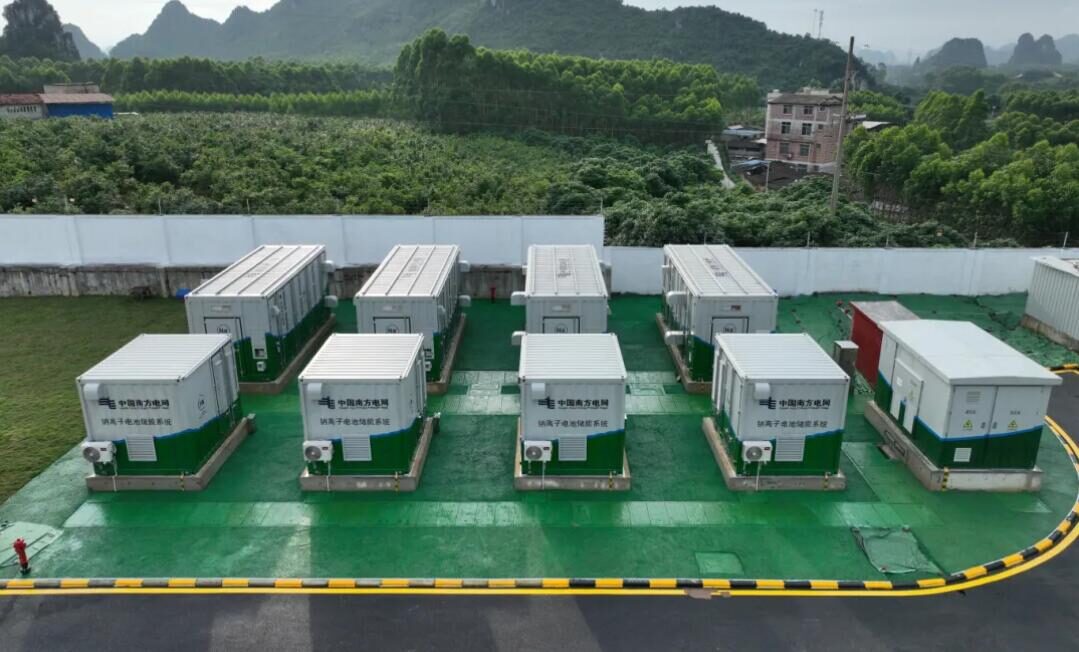The European Commission's state of the union address this year focused on the impact of the Russian invasion of Ukraine, as European electricity prices have skyrocketed since Moscow reduced gas supplies.
The president of the European Commission, Ursula Von der Leyen, presented ways for member states to cut their overall electricity consumption, including a mandatory electricity usage reduction of at least 5% during peak price hours. Member states will be required to identify the 10% of hours with the highest expected price and reduce demand during those peak hours. They should also aim to reduce overall electricity demand by at least 10% until March 31, 2023.
Von der Leyen also defended the recent proposal for a cap on the revenues of renewable energy companies that produce electricity at low cost.
“These companies are making revenues they never accounted for, never even dreamt of,” von der Leyer stated. “In these times, it is wrong to receive extraordinary record revenues and profits, benefiting from war and on the back of our consumers. In these times, profits must be shared and channeled to those who need it most.”
The commission is proposing a limit of €0.18 ($0.18)/kWh on solar and wind, which have purportedly benefited the most from high gas prices. It is also proposing a limit on biomass, nuclear, lignite and some hydropower plants. The proposal is expected to save more than €140 billion, which will be used to help reduce bills for energy consumers.
According to SolarPower Europe, the cap is set uniformly in the European Union, but member states have the possibility to introduce further caps, without the approval of the European Commission.
“We greatly regret the possibility that is preserved for member states to set a lower cap on revenues at national level. This creates high uncertainty for investors and endangers the integrity and unity of the EU market,” said Naomi Chevillard, head of regulatory affairs at SolarPower Europe. “The European Commission should set a European-wide base-level of proportionality for the new cap measures.”
The association's initial reading of the proposal finds that the cap applies to revenue from all markets, including bilateral transactions, long-term markets, and short-term markets. The cap can be set at the settlement of energy, or after, which should allow power purchase agreements (PPAs) to be preserved from the measures, except if set below the €0.18/kWh proposed by the commission. Feed-in tariffs, contracts for difference, and corporate renewable PPAs are all safeguarded from the cap. The cap also does not apply to flexibility resources like storage and demand-side response. Demonstration projects and projects with installed capacities below 20 kW are also excluded, a spokesperson from the association told pv magazine.
The proposed income ceilings could be set at different levels for renewables and conventional power generators. Oil and gas companies could see a higher revenue ceiling for each kilowatt-hour sold into the wholesale electricity market due to their higher production costs. Fossil fuel companies will be expected to contribute through a “solidarity charge” instead. The charge would be collected by member states on 2022 profits, which are above a 20% increase on the average profits of the previous three years.
The revenue cap was classified as an emergency and temporary measure. It is intended to run from 1 December 2022 to 31 March 2023, and it still needs to be signed off in a extraordinary council meeting on September 30.
The commission wants to make a “deep and comprehensive reform of the electricity market” to decouple the dominant influence of gas on the price of electricity. It announced it is working on establishing a new benchmark price for electricity trading to replace the Dutch Title Transfer Facility (TTF), which should reflect the recent dramatic changes to the gas market.
Collateral requirements to participate in exchange trading in the electricity market have risen astronomically, accompanying high electricity prices. The commission announced it will work with market regulators to amend rules on collateral to help companies with financing and liquidity challenges. It will also take measures to limit the intraday price volatility of electricity.
Von der Leyen also highlighted green hydrogen as a way out of Europe’s bleak energy situation.
“Hydrogen can change the situation completely for Europe. We have to move from a niche market towards a massive market for hydrogen,” said von der Leyen.
The commission’s RePowerEU plan doubled its green hydrogen production goal to 10 million tons by 2030. To achieve this, von der Leyen announced the creation of a new European hydrogen bank to fill the investment gap and match future supply and demand.
“This will help to guarantee supply of hydrogen using money from the innovation fund,” she said. “We will be able to invest €3 billion to help to construct a future hydrogen market.”
Von der Leyen also hinted that the restructuring of the electricity market would involve displacing the current merit order mechanism, in which the entrance price to the electricity market is determined by the power sources with the lowest running costs, solar and wind. Demand is then satisfied by working up from these sources until the required volume of energy is met. Generators selling into the wholesale market receive the price of the final, and therefore most expensive, electricity provider.
“My diagnosis is that the current electricity market design is based on the principle of merit order, which is not fit for purpose any more,” von der Leyer concluded. “It is not just for consumers. Consumers should reap the benefits of low-cost renewables.”
The Commission also proposed a regulation prohibiting the placement of goods made by forced labor on the EU market. The regulation will see products made by forced labor already in circulation withdrawn from the EU market. Enforcement will be carried out by member states' competent authorities in collaboration with customs authorities, on a risk-based approach.
*This article was amended on 15 September 2022 to note that the comments from SolarPower Europe are the association's initial analysis of the European Commission's proposal.
This content is protected by copyright and may not be reused. If you want to cooperate with us and would like to reuse some of our content, please contact: editors@pv-magazine.com.



If it walks like a duck and quacks like a duck, it’s a duck. The commission has no powers to implement taxes unless all member states agree. How is this “solidarity charge” any different from being a tax? Is it optional? The EU commission is acting illegally – where does it end, can they do anything they like as long as they call it a different name?
Not to mention what sort of message does it send to those companies in the renewables business? Is the EU a good place to do business?
No is the obvious answer I would suggest. You can expect illegal windfall taxes to be imposed on you arbitrarily.
But the consumer does benefit from renewables even using the merit order model, because more renewable capacity would push more expensive sources out, lowering the power price. If there is less incentive to build renewables, then the electricity price will stay high.
What about HydroPower?
I’m a solar system owner and I’m delivering back to the grid with very little benefits actually.
Those companies take advantage of solar system owners.
Pay little for delivering back to the grid and pay a lot more for using from the grid.
At least it should be better Balanced for the system owners.